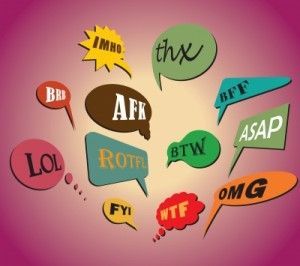mental gymnastics
Have can be confusing because it’s used in two different ways: as an auxiliary verb, and as a main verb.
When it’s an auxiliary verb, it’s part of the perfect, and is followed by a participle. In these cases, it can be contracted.
When it’s a main verb, it’s either followed by its object or a to-infinitive, and cannot be contracted.
Also, be aware that have can be both in the same sentence.
Put the words in the right order:
does go he if know not he to wants.
a am at beach disco having I on party the tonight a.
had her I if loved Mary Mike not only that told.
arrive Dave going I is to when wonder.
These two words can cause some confusion, but they’re really easy to distinguish.
Half refers to 50% of something:
– I had an apple. I cut it in two equal pieces, and gave one half to my sister and I ate the other half.
Middle refers to the central part of something.
– I’m in the middle of doing a lesson right now.
When answering another person’s comments, instead of saying just yes or no, we can respond with certain phrases that express our feelings towards the response we give. For example:
When we are fairly sure of our response to what someone else has said, we can use “think”:
“Will the report be finished on time?” “I think so.”
“Won’t Mary be coming with us?” “I don’t think so.”
Put the words in the right order to form correct sentences in English.
a lot / at / concert / people / of / night / last / the / There / were
but / even / I / milk chocolate / like / a lot / I / dark chocolate / more / like /, / !
a lot / are / but / I / many / only / people / There / trust / like /, / I / a few
been / Bill / but / goes / House / I / have / of / only / Rising / the / to / the / twice, / Sun / a lot / !
a lot / about / don’t / I / know / music / of / people / who / know / a lot
This is an expression we use when making predictions. If we are very sure of the prediction, we use this idiom to make sure everyone listening remembers that we said it and we said it early.
Easter vacation is coming soon. Mark my words, traffic is going to be terrible!
(It doesn’t have to be a difficult prediction!)
These two words can be confusing because they both refer to the end of a series. But they are easy to distinguish.
We use latest to refer to the most recent example of something. There is no implication that there will be no more.
I really like Amy MacDonald’s latest CD—have you heard it?
This is the latest in a series of high-quality beauty products we offer you.
Choose the correct form of the verb.
It was / has been six years since I last saw / have last seen you, Daria—how are you?
Phillip worked /has worked in the company from 1999 until 2007.
I spent /have spent August lying on a beach in Cadiz. Now I’m spending January in the rain!
Barbara made / has made some carrot cake last night—would you like to try some?
Who told / has told you my news? I wanted it to be a surprise!
Fix the mistakes
I like reading a lots of different kinds of books.
Martin works lot of hours during the week.
I used to go to the beach a lot of, but now I never go.
Harry has decided to retire. He’ll have a lot time on his hands now!
“Do you enjoy shopping?” “A lot of!”
Put the words in the right order
cake / everyone! / giving / made / much / She / so / to / too / yesterday, / she’s / a little
has / last / lottery / Michelle / money! / of / plenty / she / so / the / won / year,
a / bad / good / is / much / of / thing / Too
box / can / heavy— / help / is / it? / me / too / This / with / you
Don’t worry! food / for / have / of / the / picnic! / plenty / We








